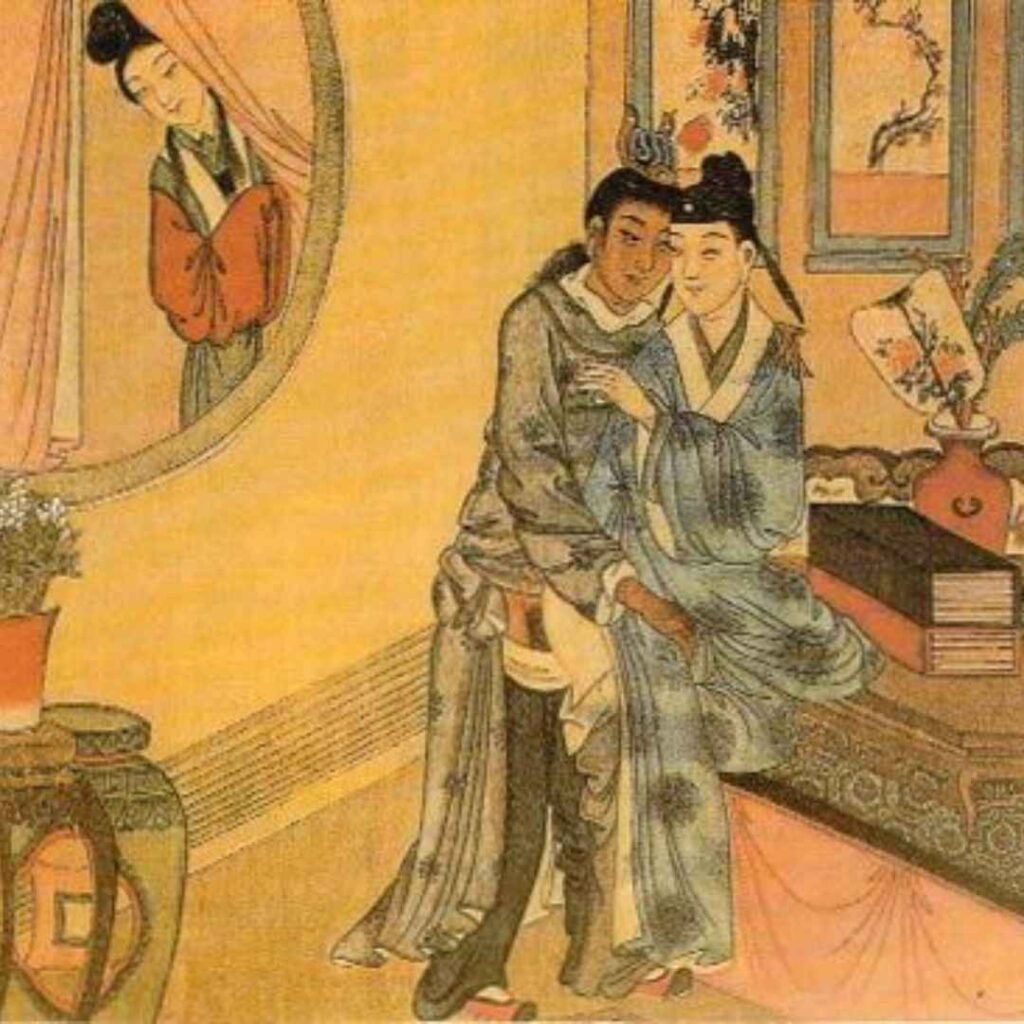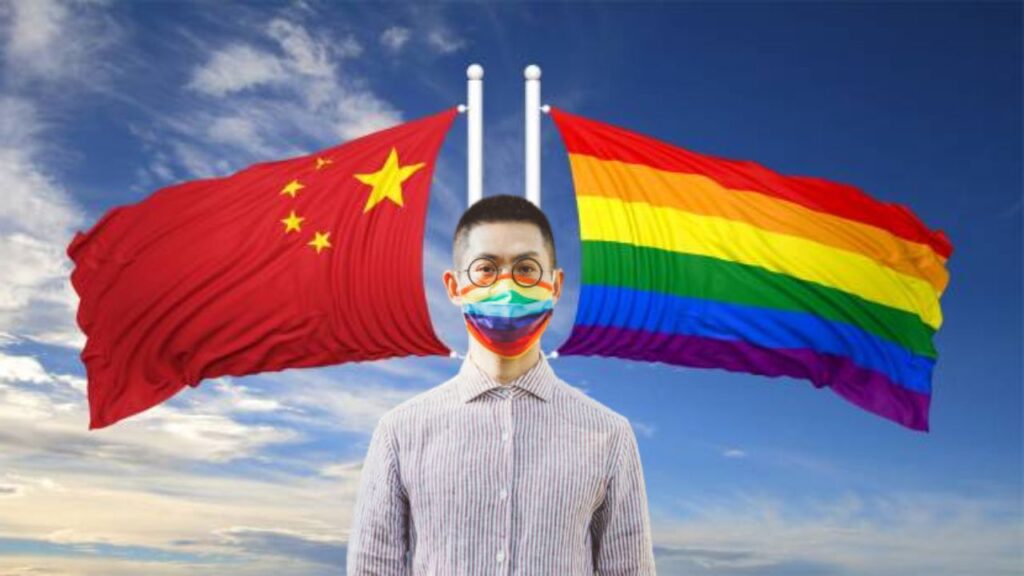In a society where traditions often serve as both a foundation and a cage, the voices of those who do not fit the norm are frequently stifled. Stories of same-sex relationships in China are reduced to whispers in the shadows, rarely heard and even less understood. The tales of love and identity, especially those that challenge societal conventions, are like delicate threads woven into the fabric of history—hidden, fragile, yet immensely powerful.
The exploration of homosexuality in China, particularly within the intricate layers of its history and culture, unveils a narrative that is as complex as it is compelling. These stories do not simply exist on the periphery; they pulse with the quiet defiance of lives lived in the margins, where love is both a rebellion and a refuge.
Imagine the courage it takes to live in a world that demands conformity, where every glance, every word, and every gesture must be measured and controlled. For those who dare to live authentically, the path is fraught with the weight of societal expectations and the ever-present fear of rejection. Yet, this struggle makes their love all the more profound—a love that flourishes not in the light of acceptance but in the shadows of a world that often fears what it does not understand.
As someone who has spent years exploring the depths of human experience through my writing, these stories are fascinating and essential. They are more than just narratives of romance; they are chronicles of resilience and survival of people who refuse to let their identities be erased, no matter how much the world tries to silence them. These stories are a testament to the indomitable spirit of love that persists despite overwhelming societal pressures—a love that dares to exist and thrive in a world that all too often tells it to hide.
These stories show the ongoing struggle for acceptance in a world that is quick to judge and slow to understand. But it is also in these stories that we find hope that one day, love will no longer need to be hidden, that every story, every voice, will be heard and celebrated for the beauty of its truth.
What Truths Lie Beneath the Surface of Chinese History?

History has a way of shaping us, even when the whole picture is obscured. Same-sex relationships in China are deeply woven into its cultural fabric, yet often, these threads have been deliberately unravelled, their existence denied or rewritten to fit prevailing ideologies.
Homosexuality in China is not a modern phenomenon, nor is it a Western import, as some may believe. Historical records reveal that same-sex relationships existed in various forms throughout Chinese history, from the imperial courts to the literary works of ancient scholars. These relationships, however, were often overlooked or actively erased from the official narratives.
This erasure is a theme I’ve explored in my novels, where characters must navigate a world that refuses to acknowledge their true selves. In The Girl in the Orphanage, we see how societal expectations and the need to conform can lead to a life lived in the shadows, where love becomes a secret that must be hidden at all costs.
Is Change Possible in the Face of Tradition?
As society evolves, so too do the attitudes that shape it. In recent years, China has seen a slow but significant shift in its approach to homosexuality. Various factors, including increased exposure to global perspectives and the growing visibility of LGBTQ+ individuals within Chinese society, have driven this change. Yet, progress is not a straight line; it is a winding road, often littered with setbacks.
The Chinese government’s stance on homosexuality has fluctuated over time, reflecting the broader social and political changes within the country. While homosexuality was decriminalised in 1997 and removed from the list of mental disorders in 2001, the road to acceptance remains fraught with obstacles. The government’s tight control over media and public discourse means that LGBTQ+ representation is still limited and often censored, creating a paradox where progress is made in private lives but remains constrained in the public sphere.
I’ve explored this tension between private and public acceptance in Cassie’s Song, where characters must reconcile their identities with society’s expectations. The struggle for authenticity in the face of overwhelming pressure to conform is a universal theme that resonates deeply within the context of China’s evolving stance on homosexuality.
How Do We Navigate the Struggle for Identity and Acceptance?

The story of same-sex relationships in China is not just about the LGBTQ+ community; it is about the broader struggle for identity and acceptance in a society that is rapidly changing. It is about the courage to love openly in a world that often demands secrecy and the resilience to live authentically despite societal expectations.
Reflecting on these themes in my writing, I am reminded that the journey toward acceptance is not a straight path but a winding road filled with obstacles, triumphs, and setbacks. The stories we tell through fiction or real-life narratives can shape our understanding of the world and ourselves.
Can Empathy Break the Chains of Silence?
We must approach these complex narratives with empathy and understanding as we continue to explore them. The fight for LGBTQ+ rights in China and worldwide is not just a battle for legal recognition but a struggle for the right to exist as one truly is.
In The Girl in the Orphanage, I wrote, “The most dangerous prisons are not made of steel and stone but of fear and silence.” This sentiment echoes the experiences of many LGBTQ+ individuals who have had to hide their true selves out of fear of rejection or persecution.
Let us, then, be the voices that break the silence. Let us be the ones who dare to tell the stories that need to be heard, who challenge the norms that seek to suppress love and identity, and who stand in solidarity with those fighting for the right to live authentically.
What Does the Future Hold for Love and Identity?
As I look to the future, I hope stories of love, identity, and resilience will continue to find their way into the light. The journey toward acceptance is far from over, but with each step forward, we move closer to a world where everyone, regardless of their sexual orientation, can live with dignity and pride.
In the words of one of my characters from The Girl in the Orphanage, “To love in a world that tells you not to is the bravest thing of all.” Let us all strive to be brave in our love, acceptance, and commitment to creating a world where everyone can be themselves.

